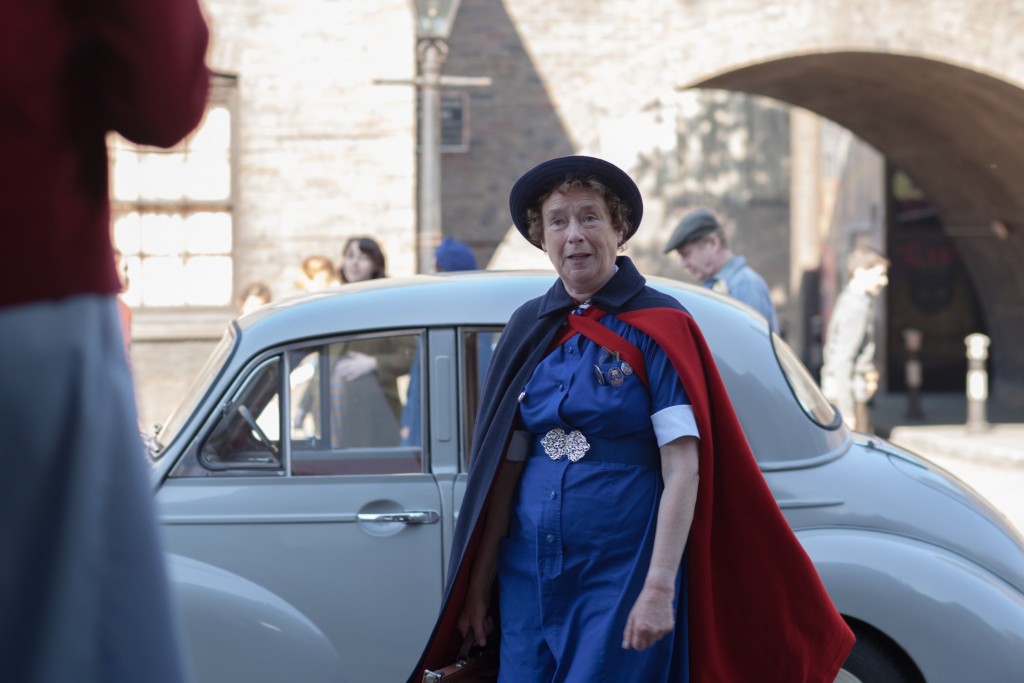For the fourth season in a row, we are honored to have the faculty of the Vanderbilt School of Nursing back to guest blog for us each Monday morning about the previous night’s episode of Call the Midwife, airing Sundays on NPT and PBS Stations nationwide at 7 p.m. CDT through May 17. Check in every Monday morning for historical and contemporary context on the show along with some fun discussion. SPOILER ALERT: Be aware that some posts may contain spoilers.

By Bethany Domzal Sanders, MSN, CNM
 This was a very emotional episode in many ways.
This was a very emotional episode in many ways.
I loved the support the midwives showed for one another in the midst of such a gut-wrenching moment. That hug that Nurse Crane gave Nurse Gilbert cracked her seemingly icy outside and really showed the depth of her compassion. I like Nurse Crane in this mentor role as it really represents the tradition of midwifery where senior midwives continue to offer their expertise and experience to newer midwives; much of the art of midwifery can’t be learned in books. It’s always nice to see a group of women building each other up and coming together.
One of my favorite things about Call the Midwife is the authentic glimpse into birth, which at times includes difficult and agonizing moments such as when a baby is stillborn. This episode featured one of those difficult moments by “dragging into light things unseen” and showing the tragedy of pregnancy and infant loss.
Although none of us likes to think of a baby dying, sadly it does happen and more frequently than we would like. The U.S. Centers for Disease Control data for 2013 reports nearly 600 deaths per 100,000 live births. While some of these deaths can be attributed to birth defects, in many cases a definitive cause is never identified.
That look shared between Nurse Gilbert and Nurse Mount was a familiar one for nurses, midwives and doctors–the silence that has so much weight as you struggle to deal with the reality of the situation and the flood of your own emotions. It is one of those times in life where there is no guidebook about what to say or do and what is said can leave a lasting impression. Surely I wasn’t the only one who cringed a bit that neither Abigail nor her husband were offered an opportunity to see or hold their infant daughter. Fortunately, our understanding of the support grieving parents need has advanced some since the 1950s, although there is still a ways to go.
In 1988, October was designated as National Pregnancy and Infant Loss Awareness Month by President Ronald Reagan, recognizing that there are no words to describe parents who have lost children either through miscarriage, ectopic pregnancy, molar pregnancy, stillbirth, birth defects, SIDS or other causes. More recently there has been a national movement to make October 15th “Pregnancy and Infancy Loss Remembrance Day.” This observance provides an opportunity for families and friends to acknowledge and celebrate these lives, no matter how brief they were. Loss doulas and perinatal hospice teams uniquely serve these most vulnerable and hurting families. Support organizations such as SHARE Pregnancy & Infant Loss Support have active local chapters where parents can relate to each other’s experiences and tell their stories.
As Sister Julienne so wisely said, “What is love if not acknowledged?”
Bethany Domzal Sanders, MSN, CNM, is a member of the Vanderbilt Nurse-Midwives, the clinical practice of the Vanderbilt University School of Nursing located at West End Women’s Health Center.